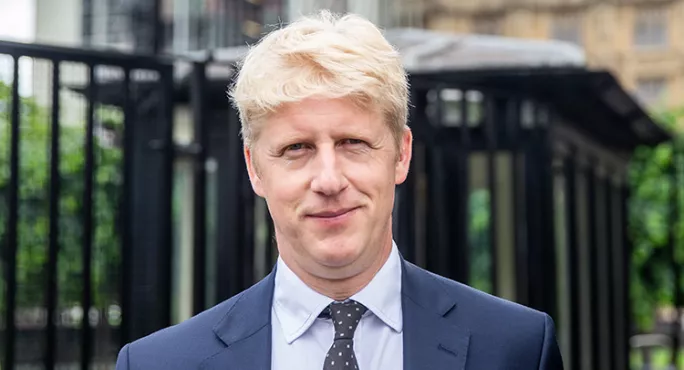Snobbery towards further education no longer exists, former higher education minister Jo Johnson said this morning.
As part of the Conservative Party Conference, speaking on an Education Policy Institute panel on the relationship between FE and HE this morning, Mr Johnson said that the notion of snobbery was an “artefact” and that, actually, there is an “aggression” towards higher education.
He said: “I don't really recognise the snobbery point you're making any more. I think that's kind of gone, I think that's an artefact. On the contrary, you see a sort of aggression towards higher education and a sentiment in the media also that too many people are going to university [and] that is not delivering value, and all that...all those sorts of lines.
Is there still snobbery over FE colleges?
“I think that's really where the focus is, on trying to shift prestige back towards the college system and to get more kids going through colleges and recognising that not everybody has to do a degree, and that's been the priority for the Conservative government for quite some time.”
News: End 'pointless, nonsensical gulf' between FE and HE, says prime minister
More: Why Boris Johnson's skills speech was a key step
Background: Skills guarantee is the 'backbone' of Covid recovery, says Williamson
Speaking at Exeter College last week, prime minister Boris Johnson said that it was time to end the "distinction between HE and FE".
Chris Husbands, vice-chancellor of Sheffield Hallam University, agreed with Mr Jo Johnson and said that he did not witness any snobbery.
He said: “I have never found [snobbery] in my regions. I think that’s a Westminster construct. I just don’t see it.”
'We need to change the narrative'
David Hughes, chief executive of the Association of Colleges, said there was snobbery in Westminster and Whitehall, and that impacted massively on policy.
He said: “For me, it's about how you paint the picture of what the skills arena looks like. We've spent the last 20, 30 years saying that everybody needs to go to university, get a degree, because that's the answer. We need to just change that narrative. We still need people to go to university to get degrees, absolutely – but we also need people to be able to get skills at other levels.
“If we are fixated on young people coming into the system all the time, we miss the point of adults who are already in work and need new skills at all levels. You can't start a degree if your literacy is poor, you can't start a degree if you haven't got a level three.”
Angela Foulkes, principal at Sheffield College, said that she did believe a snobbery still existed – but that it differed between young people and adults.
She said: “At Sheffield College, there are 15,000 students. Some 5,000 of those are young people, and the other 10,000 are adults. The way that the adults interact with the college is very, very different to the way people feel about young people in a large inner-city college.
“The adult curriculum and the way that works is very well respected and it's driven a lot by employers who respect the work of colleges in the vocational and technical sense, and they recognise that colleges are the place to go for employees.
“When it comes to the sort of 5,000 young people, that's a whole different thing. And so that's just about rhetoric. When you read about the post-16 environment, it's usually about schools. At Sheffield college, we educate more 16- to 18-year-olds in the schools, but we just don't get out there enough into the places where people will understand that.”
Jo Johnson is non-executive chair of Tes Global




